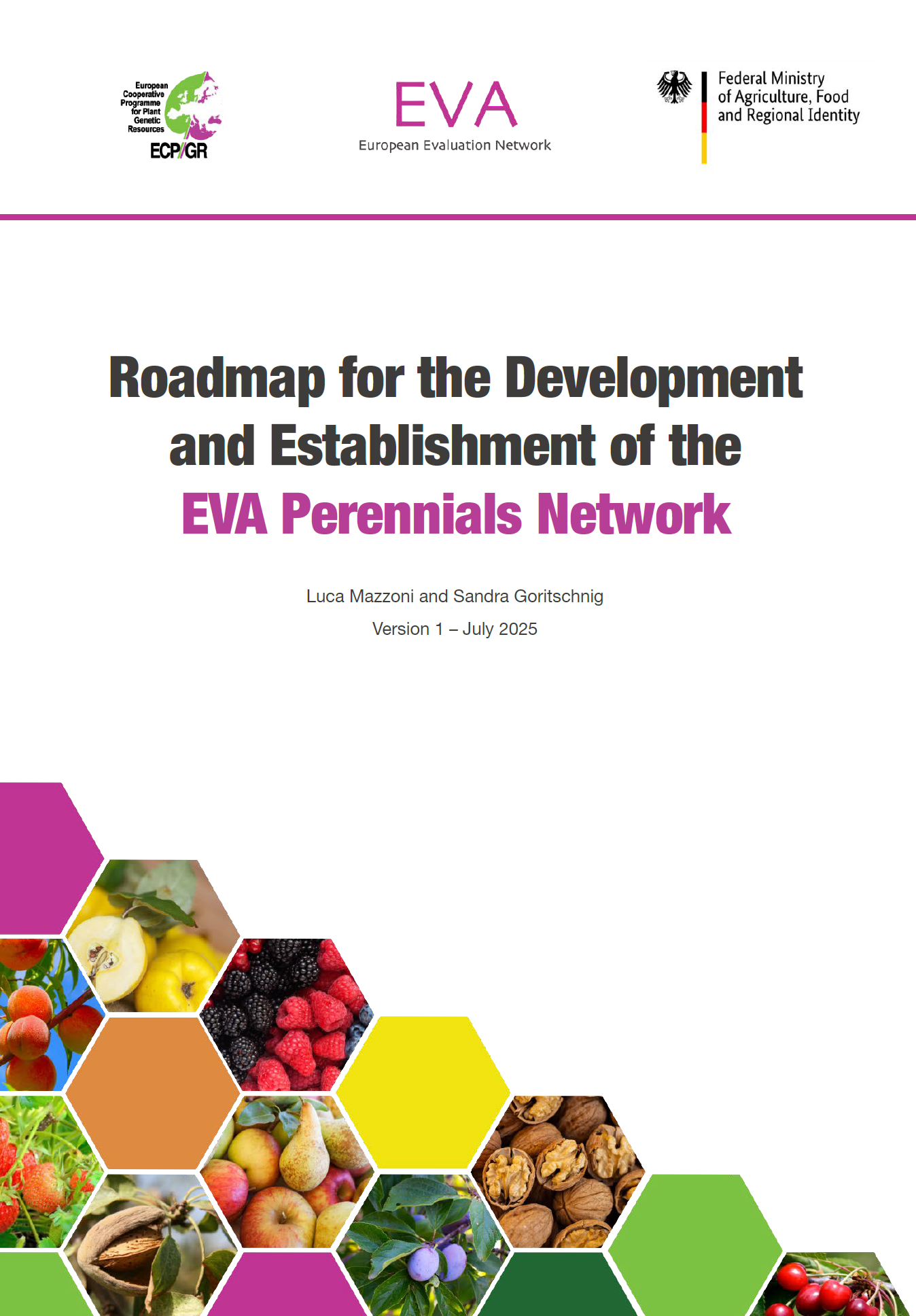The European Cooperative Programme for Plant Genetic Resources (ECPGR) has published a roadmap for the development of the EVA Perennials Network, an important step towards improving the conservation and use of Europe’s perennial crop diversity. Building on the ECPGR Evaluation Network (EVA), which since 2019 has coordinated the evaluation of seed-propagated crops across Europe through public–private partnerships, this initiative will now extend the model to fruit trees, berries, nuts and grapes.
Perennial crops – such as apple, pear, plum, cherry, strawberry, walnut and grape – play a vital role in Europe’s agriculture, food security and rural economies. They also contribute to biodiversity, landscape conservation and climate resilience. However, unlike annual crops, they present unique challenges: long life cycles, complex genetic structures, and the extended time required for evaluation and breeding. Many European collections remain underused due to incomplete data, lack of regeneration and limited characterization. The EVA Perennials Network aims to address these gaps by fostering collaboration, pooling resources and generating shared evaluation data to support breeding, pre-breeding and sustainable use.
The roadmap was developed through a structured, participatory process under the German-funded project EVA Boost. Early discussions within ECPGR Working Groups, particularly those focused on Berries, Malus/Pyrus, Prunus and Vitis formed the conceptual and organizational backbone for roadmap development. These were followed by a stakeholder mapping exercise engaging genebanks, research institutions, nurseries, small and medium-sized enterprises, NGOs and policymakers. The process culminated in a 2-day workshop in Ancona, Italy, where experts co-developed priorities, supported by insights from a Europe-wide survey.
Stakeholders identified berries, stone fruits, pome fruits and nuts as priority groups, with strong interest in strawberries, blueberries, raspberries, plums, cherries, apples and walnuts. Grapes were also highlighted as a promising candidate for initial activities. The roadmap envisions these crops as the starting point for specialized networks, with potential for future expansion to additional species and wild relatives.
The EVA Perennials Network embodies a strategic, innovative and inclusive approach, combining scientific rigour, advanced technologies and simplified legal frameworks with broad stakeholder engagement. By 2027, within the EVA Boost project, strategic work plans for priority crops are expected to be in place. Their implementation will depend on continued collaboration, funding and communication.
Ultimately, the initiative seeks to ensure that Europe’s perennial crop heritage is safeguarded, valorized and enhanced for future generations, while equipping agriculture with the tools to meet the challenges of climate change and evolving market needs.
For more information, read Roadmap for the Development and Establishment of the EVA Perennials Network
This work was funded by the German Federal Ministry of Agriculture, Food and Regional Identity (BMLEH) through grant GenR 2024-2.
